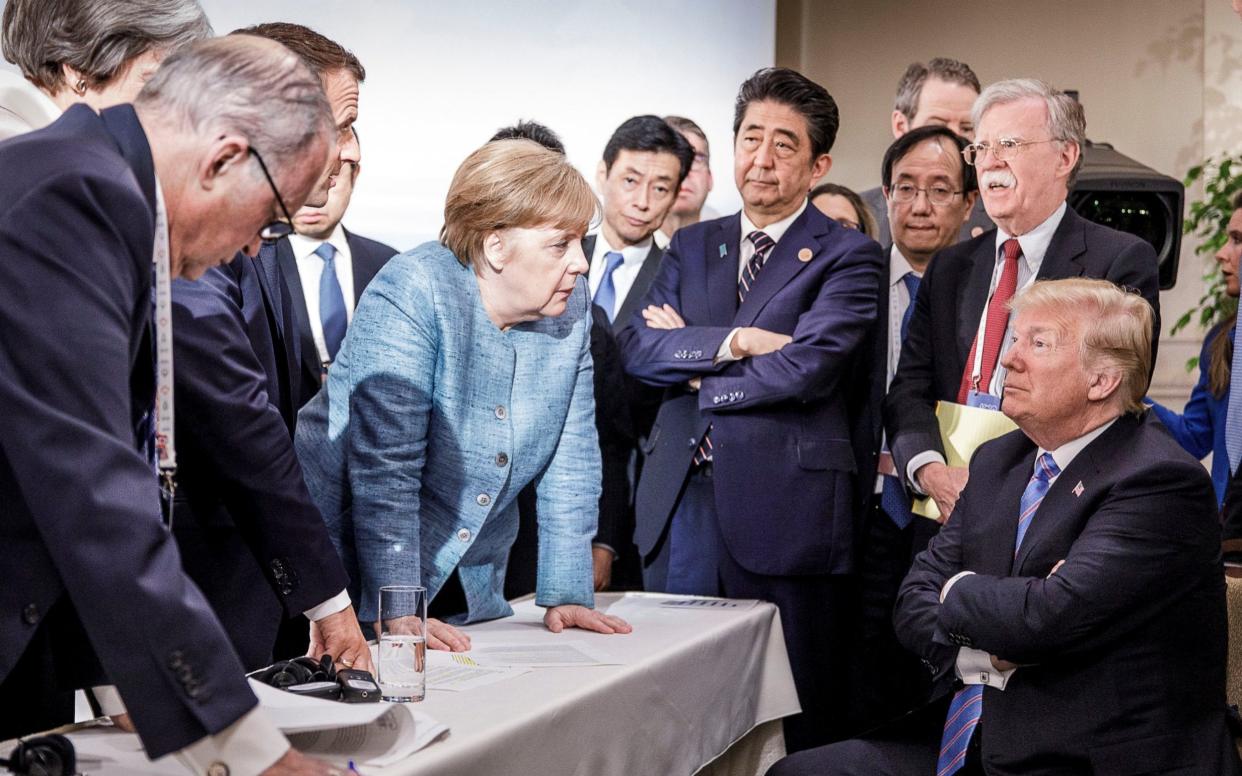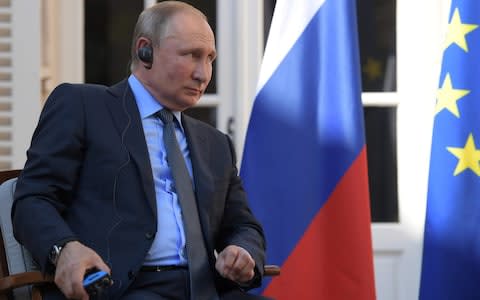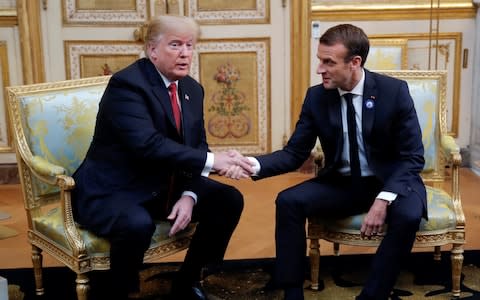As G7 leaders gather in Biarritz, the group is more divided than at anytime in its 45 year history

This weekend's G7 summit is unlikely to produce a joint communique amid deepening divisions between the world's seven richest nations over everything from Brexit to trade, climate change, and how to deal with China, Iran, and Russia.
It will be the first time the forum of leading economies has failed to produce a statement of common intention and agreement since it began as the Group of Five in 1975, in the latest blow to the post-Cold War consensus of free trade, democracy, and globalization that it once represented.
Emmanuel Macron will host Boris Johnson, Donald Trump, Angela Merkel, Japanese prime minister Shinzo Abe, Canada's Justin Trudeau, and Italy's prime minister Giuseppe Conte for the 45th summit of the world's leading industrialized nations in the surfing resort of Biaritz this weekend.
An early sign of trouble came last week, when Donald Trump repeated his call for Russia to be readmitted to the group. Vladimir Putin has been persona-non-grata at G7 meetings since he annexed Crimea and sent troops to support a separatist uprising in eastern Ukraine in 2014.
Mr Macron immediately shot that down, warning it would be “strategic error” to let Russia back into the club while it continued to fuel the war in east Ukraine.

“I think to say that without any conditions Russia can return to the table would be signing off the weakness of the G7,” he said.
Boris Johnson, widely seen as a rare European ally of Mr Trump, was equally lukewarm on Russia returning: “Given what happened in Salisbury,” he noted after meeting Mrs Merkel this week, “the case has yet to be made.”
But differences over how to handle Mr Putin are only the tip of the iceberg.
Mr Macron has made the forest fires in Brazil the top priority for the summit, and has also said he wants to use the summit to push for an overhaul a “crazy” global tax system that sees tech giants like Google, Amazon, and Facebook get away with paying minimal taxes no matter where they operate.
Winning over Mr Trump, who leads by far the biggest economy in the room and enjoys considerable influence with other populists, including Brazil's Jair Bolsonaro, is key to achieving those goals.
But Mr Trump has a much more sceptical attitude to climate change than his G7 colleagues, and sees the notion of a “digital tax” as an attack on US flagship businesses.
He has threatened to slap tariffs on French wine in retaliation. The seven are also divided over rising strategic challenges.

In 2018 Mr Trump pulled the United States out of the 2015 nuclear agreement with Iran and adopted a policy of maximum economic pressure intended to force Tehran to accept tighter nuclear restrictions and end its ballistic missile program and backing for armed groups across the Middle East.
The European members of the club, including Britain, remain committed to the agreement and have attempted to continue to trade with Iran in a bid to keep the deal alive, despite US pressure.
Ironically, Mr Macron may be relying on that French wine - among other delicacies - to raise the mood at what are expected to be contentious talks.
The Elysee palace has hired five Michelin-starred local chefs to prepare Basque specialties for the lunches and dinners where the most serious talking will be done.
The G7, consisting of Canada, France, Germany, Italy, Japan, the United Kingdom, and the United States, began in the 1970s as an annual meeting of the leaders of the world's largest developed economies.
Russia joined as a full member in 1998, making it the G8. It was suspended following the annexation of Crimea in 2014 and left permanently in 2017.

 Yahoo News
Yahoo News 
